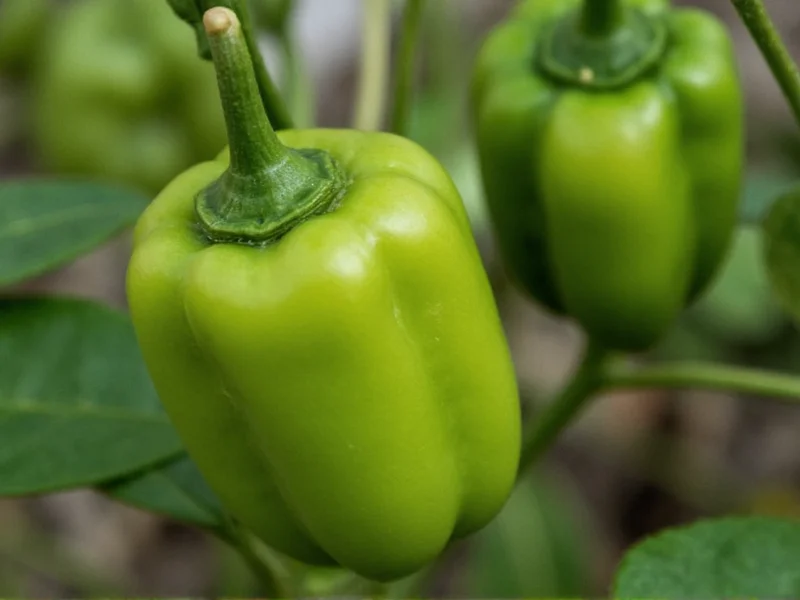Originating from the fertile Hatch Valley in New Mexico, Hatch chiles have become culinary staples across the United States. These versatile peppers, scientifically classified as Capsicum annuum, offer more than just heat—they provide a complex flavor profile that combines earthy, slightly sweet notes with varying degrees of spiciness. Understanding how spicy are Hatch green chiles requires examining multiple factors that influence their heat levels.
Understanding Hatch Chile Varieties and Heat Levels
Hatch chiles aren't a single variety but rather a collection of New Mexican-type peppers grown in the Hatch Valley region. The most common varieties include Big Jim, Sandia, and Española, each with distinct heat characteristics. When people ask is Hatch chile spicy, they're often unaware that the same field can produce peppers ranging from mild to quite hot.
The Scoville scale provides the most accurate measurement of pepper heat. For context, here's where Hatch chiles fall compared to other common peppers:
| Pepper Variety | Scoville Heat Units (SHU) | Heat Level |
|---|---|---|
| Hatch Chile (Green) | 1,000-8,000 | Mild to Medium |
| Jalapeño | 2,500-8,000 | Mild to Medium |
| Serrano | 10,000-23,000 | Medium to Hot |
| Hatch Chile (Red/Ripe) | 4,000-10,000 | Medium |
| Habanero | 100,000-350,000 | Very Hot |
Factors That Determine Hatch Chile Spiciness
Several elements influence why are some Hatch chiles hotter than others, making their heat unpredictable even within the same harvest:
Ripeness Stage
Green Hatch chiles are harvested before full ripeness and generally milder. As they mature to red Hatch chiles, their capsaicin content increases, typically making them 20-50% hotter than their green counterparts. This explains why many people wonder are red Hatch chiles spicier than green—the answer is usually yes.
Growing Conditions
Environmental stressors significantly impact heat levels. Peppers grown in hotter, drier conditions with less water tend to develop higher capsaicin concentrations as a defense mechanism. The unique microclimate of the Hatch Valley—with its high elevation, abundant sunshine, and mineral-rich soil—contributes to the distinctive flavor and variable heat of these chiles.
Varietal Differences
Not all Hatch chiles are created equal. The Big Jim variety typically ranges from 500-2,500 SHU (very mild), while the Sandia variety can reach 5,000-8,000 SHU (medium heat). Some specialty varieties like the Lumbre can exceed 10,000 SHU. This variation explains why consumers might experience different heat levels when purchasing Hatch chile heat level compared to jalapeño peppers.
Culinary Applications Based on Heat Level
The versatility of Hatch chiles stems from their wide heat range. Chefs and home cooks can select varieties based on desired spiciness:
- Mild varieties (1,000-3,000 SHU): Perfect for stuffed chiles, sauces, and dishes where flavor should dominate without significant heat
- Medium varieties (3,000-6,000 SHU): Ideal for salsas, stews, and roasted pepper applications where noticeable but manageable heat is desired
- Hot varieties (6,000-8,000+ SHU): Best for those seeking substantial heat in hot sauces, spicy marinades, or authentic New Mexican cuisine
When roasting Hatch chiles—a traditional preparation method that enhances their flavor—the heat level remains relatively stable, though the perception of spiciness may change as other flavor compounds develop.
Handling Hatch Chiles Safely
Even mild Hatch chiles contain capsaicin, the compound responsible for heat. When working with hotter varieties:
- Wear gloves to prevent skin irritation
- Avoid touching your face, especially eyes
- Wash hands thoroughly with soap after handling
- Remove seeds and white membranes (placenta) for reduced heat, as these contain the highest concentration of capsaicin
For those sensitive to spice, understanding Hatch chile spiciness chart variations can help select appropriate varieties. Many grocery stores now label Hatch chiles by heat level, making it easier to choose based on personal tolerance.
Regional Significance and Seasonality
The authentic Hatch chile season runs from late July through September, when freshly harvested peppers flood markets. During this period, you'll find the widest variety of heat levels. The annual Hatch Chile Festival celebrates this agricultural treasure with roasting demonstrations, cooking competitions, and opportunities to sample different varieties.
Outside the growing season, frozen or canned Hatch chiles maintain much of their distinctive flavor, though the heat profile may mellow slightly during processing. When purchasing out of season, check labels for Hatch chile Scoville scale rating indicators if available.
Frequently Asked Questions
How spicy are Hatch green chiles compared to jalapeños?
Hatch green chiles range from 1,000-8,000 Scoville units, while jalapeños range from 2,500-8,000. Many Hatch varieties are milder than average jalapeños, though some hotter Hatch varieties can match or slightly exceed jalapeño heat levels.
Are red Hatch chiles spicier than green Hatch chiles?
Yes, red (fully ripe) Hatch chiles are typically 20-50% hotter than their green counterparts. As Hatch chiles mature and change color, their capsaicin content increases, resulting in greater heat intensity while developing sweeter, more complex flavors.
What makes some Hatch chiles hotter than others?
Multiple factors affect Hatch chile heat: variety (Big Jim vs. Sandia), growing conditions (water stress increases heat), ripeness (red are hotter than green), and even position on the plant. Two peppers from the same plant can have different heat levels due to these variables.
Which Hatch chile variety is the mildest?
The Big Jim variety is generally considered the mildest Hatch chile, typically ranging from 500-2,500 Scoville units. It's often recommended for those sensitive to spice who still want authentic Hatch flavor without significant heat.
How can I reduce the heat of Hatch chiles in cooking?
To reduce heat, remove seeds and white membranes (placenta) where capsaicin concentrates. Roasting can mellow heat slightly while enhancing flavor. Cooking with dairy (cheese, sour cream) or acidic ingredients (tomatoes, lime) also helps balance spiciness in finished dishes.











 浙公网安备
33010002000092号
浙公网安备
33010002000092号 浙B2-20120091-4
浙B2-20120091-4